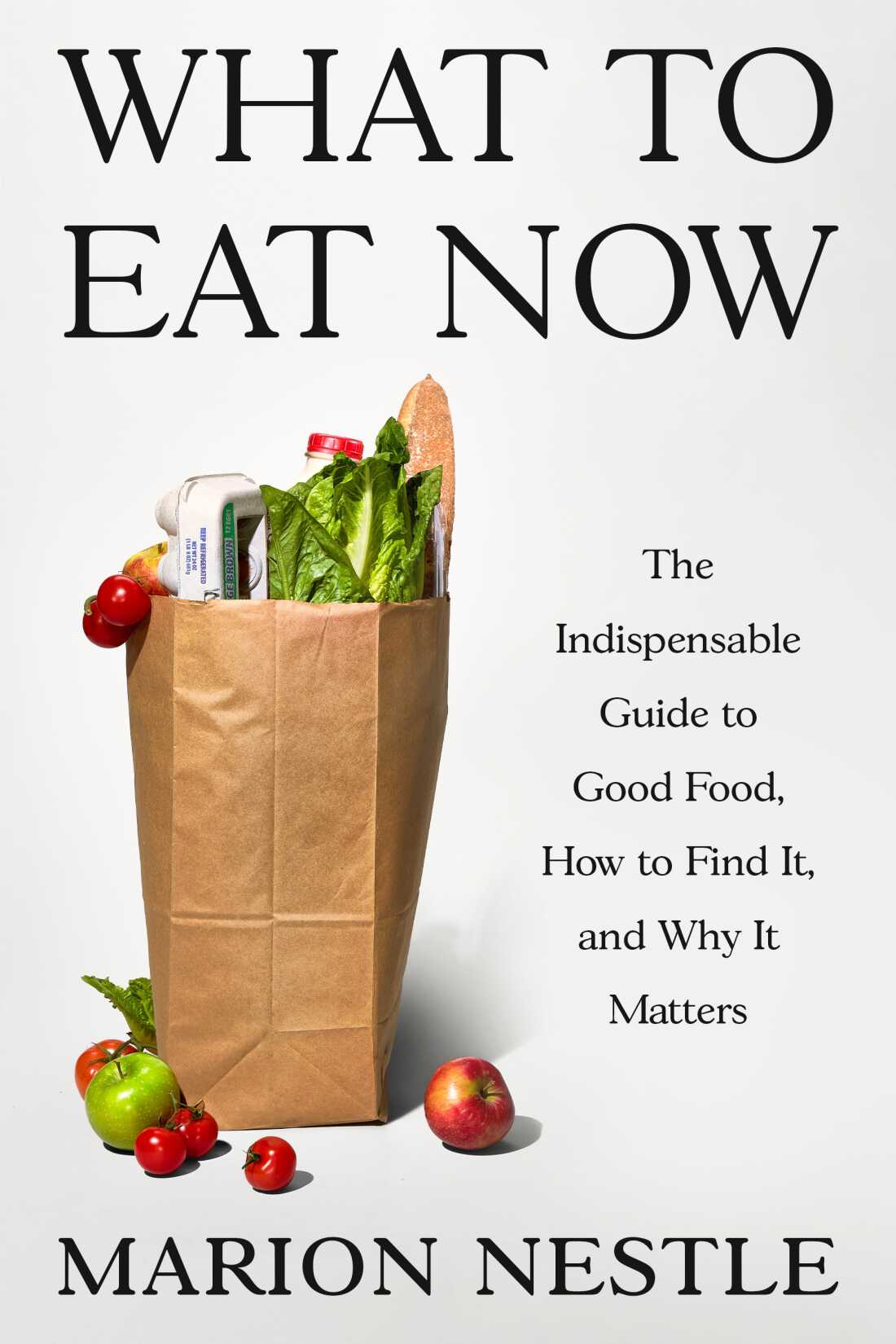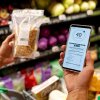A California’s SNAP advantages shopper pushes a cart by a grocery store in Bellflower, Calif., Feb. 13, 2023.
Allison Dinner/AP
cover caption
toggle caption
Allison Dinner/AP
Diet coverage knowledgeable Marion Nestle says that when she wrote her first ebook, Meals Politics, in 2002, folks typically requested her what meals needed to do with politics.
“No person asks me that anymore,” Nestle says. “After I take a look at what’s occurring with meals help I am simply shocked.”
Nestle says the Trump administration’s efforts to withhold SNAP advantages from hundreds of thousands of Individuals has made clear how fragile our financial system is: “We now have 42 million folks on this nation — 16 million of them kids — who cannot depend on a constant supply of meals from everyday and should depend upon a authorities program that gives them with advantages that actually do not cowl their meals wants, solely cowl a part of their meals wants.”
Many years of learning the meals trade have given Nestle a clear-eyed view of why meals has turn into troublesome to afford — together with the methods supermarkets contribute to the issue. “The aim of a grocery store is to promote as a lot meals as doable to as many individuals as doable, as typically as doable at as greater costs they’ll get away with,” she says.
Nestle’s 2006 ebook, What to Eat, turned a shopper bible of kinds when it got here out, guiding readers by the grocery store whereas exposing how trade advertising and marketing and coverage steer our meals decisions. Now, 20 years later, she’s again with What to Eat Now, a revised area information for the grocery store of 2025.
Nestle recommends what she known as a “triple obligation” weight loss program aimed toward stopping starvation, weight problems and local weather change: “Eat actual meals, processed as little as doable, with a giant emphasis on vegetation,” she says.
Interview highlights

On how supermarkets are within the enterprise of promoting merchandise, not offering vitamin
The extra merchandise you see, the extra you are possible to purchase. Due to this fact, the merchandise which are organized so that you just can’t miss them are in prime grocery store actual property. And firms pay the supermarkets to put their merchandise at eye degree, on the ends of aisles — these have a particular title, finish caps — and on the money register. If you see merchandise on the catch register, they’re paying charges to the grocery store by the inch of house. And that is how supermarkets make loads of their cash, is thru slotting charges. And, in fact, what this does is it retains small producers out, as a result of they can not afford to make these sorts of funds. … I imply, we’re speaking about 1000’s, or in some circumstances, lots of of 1000’s of {dollars}. And each single product that’s in a grocery store is positioned the place it’s for a motive.
On how greenback shops bought into the meals enterprise
They began out by promoting the most well-liked ultra-processed meals. … They’ll have chips. They’ll have sugar-sweetened cereals. They’ll have each junk meals you might presumably consider. That is what they make their cash off of. They may have a couple of vegatables and fruits, a couple of unhappy bananas, a couple of unhappy apples, perhaps some pears, perhaps some inexperienced greens, however not very many, they usually’ll be in a case off someplace as a result of they’ve to supply these. As a result of they’re taking SNAP advantages, they’re required to fulfill the stocking necessities of the SNAP program, which requires them to have a sure variety of vegatables and fruits. … And [dollar stores are] simply in all places. And in the course of the pandemic, significantly, they simply proliferated like mad, they usually undercut native shops. They’re cheaper. They’ve poorer high quality meals, however the costs are decrease. Worth is a gigantic difficulty.
If you need a Dealer Joe’s or a Entire Meals or a Wegmans in your neighborhood, you have to have lots of of 1000’s of individuals inside strolling distance or fast driving distance who make very, superb incomes or the [people] aren’t gonna go there. They’ll shut the shops that aren’t performing properly, which means having heaps and plenty of folks spending heaps and plenty of cash at them. And in order the large grocery shops have closed in internal metropolis neighborhoods, the greenback shops moved in.
On meals waste in America
Our meals system in america produces 4,000 energy a day for each man, lady and little tiny child within the nation. That is roughly twice what the inhabitants wants on common. So waste is constructed into the system. As a result of that is how the subsidies work. The agricultural subsidies encourage meals producers to provide as a lot meals as doable as a result of they receives a commission for the quantity of meals that they produce.
On initially agreeing with Robert F. Kennedy Jr.’s “Make America Wholesome Once more” strategy to the meals trade
I used to be very hopeful when he was appointed, as a result of he was speaking about, let’s get the toxins out of the meals provide. Let’s make America wholesome once more. Let’s make America’s youngsters wholesome once more. Let’s do one thing about ultra-processed meals. Let’s do one thing about mercury and fish. And loads of different points that I believed, “Oh, how completely terrific that we’ll have anyone who cares about the identical type of points I do. That is very thrilling.”
When President Trump launched his nomination of Robert F. Kennedy Jr. on social media, President Trump talked in regards to the meals industrial complicated. I almost fell off my chair! I believed, “Here is the president sounding identical to me. What is going on on right here?” So then we had the primary MAHA report, the primary Make America Wholesome Once more report, which talked about loads of these points and put in an aspirational agenda. “We will work on this, this and this” — all of that sounded terrific. After which the second report got here out they usually had backed off on almost all the issues that I believed have been actually critically necessary.
On why she believes the meals system wants a revolution

Marion Nestle recommends a weight loss program aimed toward stopping starvation, weight problems and local weather change: “Eat actual meals, processed as little as doable, with a giant emphasis on vegetation.”
Peter Menzel
cover caption
toggle caption
Peter Menzel
I believe it will begin with remodeling our agricultural manufacturing system to at least one that was centered on meals for folks as an alternative of animals and cars. We would want to alter our electoral system in order that we might elect officers who have been all in favour of public well being reasonably than company well being. We would want to repair our financial system in order that Wall Road favors companies who’ve social values and public well being values as a part of their company mission. These are revolutionary ideas at this level as a result of they appear so removed from what’s attainable. However I believe if we do not work on that now, if we don’t do what we are able to to advocate for a greater meals system, we can’t get it. And it is provided that we advocate for it that we have now an opportunity of getting it. And also you by no means know, typically you get fortunate. …
I inform those that they can not do it on their very own, that even the act of going right into a grocery retailer and attempting to make wholesome decisions signifies that you, as a person, are up towards a complete meals system that’s aimed toward getting you to eat probably the most worthwhile meals doable, no matter their results on well being and the setting. So it’s a must to be a part of organizations. It’s important to be a part of with different people who find themselves all in favour of the identical points and anxious about the identical issues and get along with them to set some objectives for what you’d love to do after which work in direction of these objectives. As a result of should you do not do it, who will?
Therese Madden and Anna Bauman produced and edited this interview for broadcast. Bridget Bentz, Molly Seavy-Nesper and Meghan Sullivan tailored it for the online.






